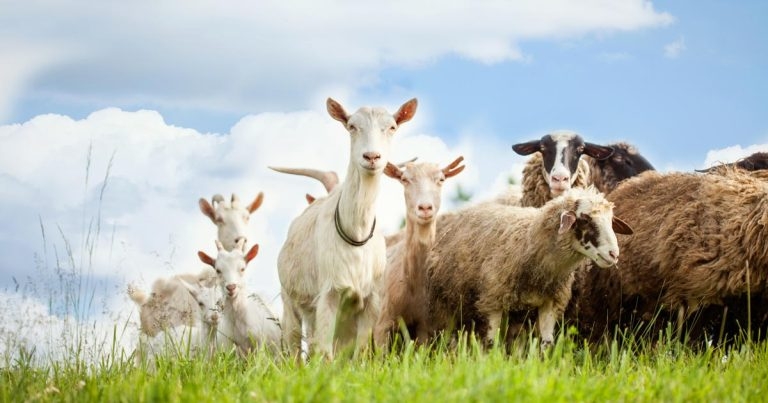13 Dec 2021
Two vaccine candidates and DIVA tests for peste des petits ruminants virus have been developed by researchers at The Pirbright Institute.

The interactive conference is aimed at vets, producers and industry, with this year’s theme being “Youngstock and replacement rearing”. Image ©V&P Photo Studio / AdobeStock
Researchers at The Pirbright Institute have developed two vaccine candidates and tests that could differentiate between vaccinated and animals infected with peste des petits ruminants virus (PPRV).
A global eradication programme aims to rid the world of PPRV, which causes severe disease in small ruminants including sheep and goats, and particularly impacts Africa, Asia and the Middle East.
In 2011, rinderpest joined smallpox as the only virus to be eliminated. Now PPRV is being targeted, and developing a vaccine to allow farmers to differentiate between animals that have acquired immunity through vaccination, and those that have acquired immunity through natural infection, is a priority to rid the world of PPRV by 2030.
Pirbright scientists have been exploring ways to create live attenuated DIVA vaccines using reverse genetics, which provides a way to manipulate the RNA virus genome through DNA copies.
The researchers have used the techniques to take current strains of PPRV and replace the variable part of the N gene with that of a related virus called dolphin morbillivirus.
The modified vaccine strains of PPRV were assessed for their growth characteristics in vitro and their responses in vivo, and were found to behave similarly to the parent strains. They also offered protection against disease for vaccinated goats.
Additionally, ELISA diagnostic tests were successfully designed to differentiate antibodies in the blood of infected and vaccinated animals, therefore demonstrating the creation of DIVA vaccines.
Satya Parida, who led the research and was head of the vaccine differentiation group while at Pirbright, is now working at the Food and Agriculture Organisation of United Nations (FAO) as laboratory and vaccine specialist.
Prof Parida said: “This is a key breakthrough in the global eradication of PPRV, as a DIVA vaccine was the next piece of the puzzle. It allows for surveillance of animals to determine disease spread and monitor outbreaks, while also protecting animals and preventing virus shedding.
“We also showed that these novel vaccines can protect against any of the four lineages of PPRV. The next step is to test the efficacy of these DIVA vaccines on a larger number of animals to further establish the safety and potency before they are used in the field.”
Research was funded by the Biotechnology and Biological Sciences Research Council.